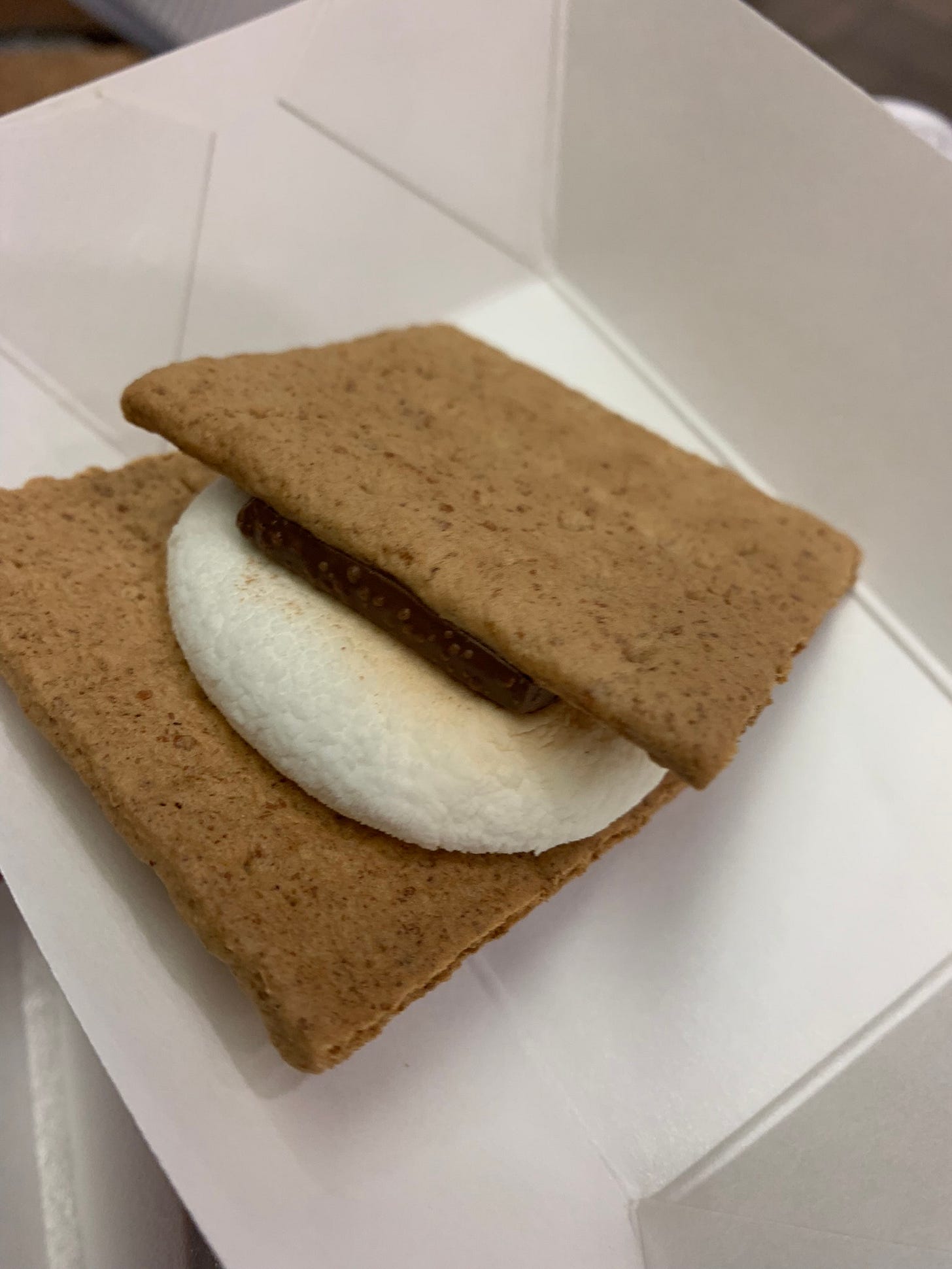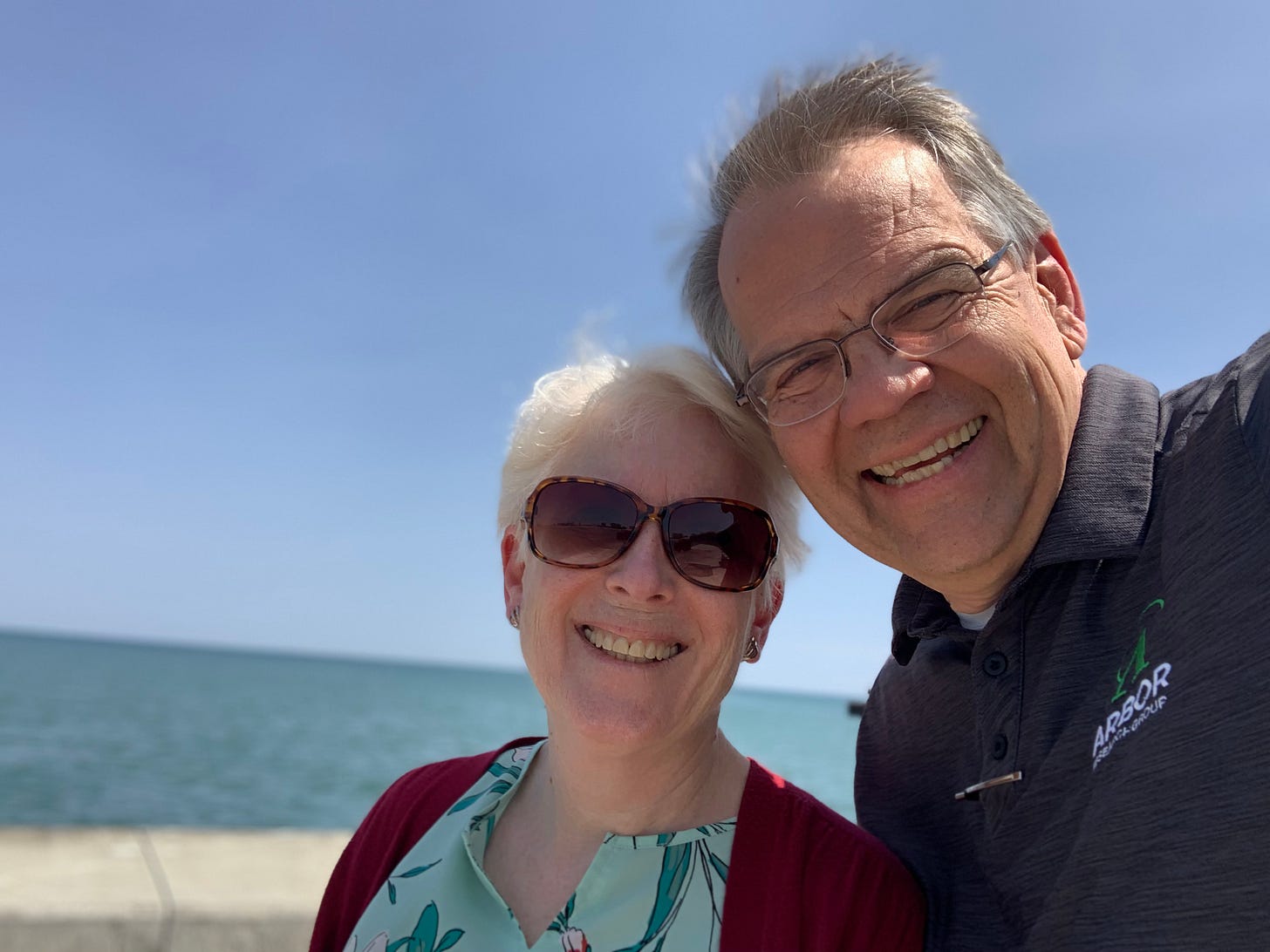Welcome back (or welcome)!
Over the past couple weeks, we’ve had several new subscribers. You know that this is “a newsletter with stories and tools to help you be more comfortable as you help others in hard times.”
It’s part of a bigger project that started a year ago. I want to get us all caught up.
And that’s what we’ll do today with a summary of the survey where I started and links to writing that’s come of it.
Save this email and share it with others. I want to be helpful in times of loss.
+++
“When a loved one dies, what support do people find helpful?”
As a hospital chaplain, that’s a question I ask myself often. And others ask me as well.
We want to get it right. We don’t want to mess things up. Some of us are so afraid to say the wrong things that we say nothing. Others of us are unaccustomed to pausing for a bit and so we say everything.
I’ve been offering (and receiving) support after the death of loved ones for nearly seven years as a chaplain, twenty years as a clergy member, decades as a human. But I wanted go beyond my experience and practices to actually ask people about their experience. What do people find helpful?
I realized that I could actually start a research project to learn what people find helpful. Because I had access to research tools, because I’m a communication scholar by training, because I’ve been living in this work for a couple decades, I decided that it was time.
In 2022, I started a project which I called, “Being helpful in loss.” For the last year, it’s been in the background of most things I do.
So far, the project has included a survey, this newsletter, reviewing research literature on bereavement and support from three other major research initiatives, and my on-going conversations with people in and out of the hospital.
The survey
In August 2022, I created a survey with four core questions for people who had lost a loved one: what they found helpful in 1) what people said or 2) did or 3) gave in grief support materials, and 4) what people wish someone had said or done. I asked for demographics about their loved one and about them.
I made the survey public to readers of my writings, and it was shared by others (notably Dr Lee Warren).
I ended up with 155 full and partial survey responses.
Respondents were between 25 and 94, with the biggest cluster in their 60s. They had lost parents (42.5%), spouses (12.5%), children (12.5%), siblings (10%), friends (7.5%), grandparents (6.3%), and others (other family members, family friends)
The people who died were from 16 weeks gestation (stillborn) to 105.
The deaths happened from 1974 to the summer of 2022.
Most respondents are from the US and most identify as white.
A majority of respondents are women (70%), followed by men (21%) and people who didn’t indicate (8%).
What I’ve learned so far from the survey and beyond.
Acknowledge that you know about the death. It can be a text, a phone call, a visit. But taking the initiative means that the person doesn’t have to remember everyone.
Rather than looking for the formula of the right thing to do, think about the person as an individual. Because personalities are different, even about grief. Circles of support are different. Relationships between survivors and to the loved one are different. Even a few minutes of reflection will help you know what could be helpful. Read “There are no recipes”.
And then do something. Preferably something informed by this list.
Read “Being a helpful leader in loss” for things to consider if you are a boss.
Download “31 things to say or do to help someone when their loved one has died.”
Don’t depend on “experts”. People most remember what people they know do and say. One study said the most help came from family and friends, and that the least helpful people were professionals.
As you are thinking of what to do, consider the following (drawn from eleven clusters of response in the research)
Tell stories about the person or ask for stories about the person.
Be present (but not smothering) and let them know you care (in ways that they will hear as caring) (Read “On measuring presence”.)
Listen without offering answers or advice or comparisons. And be willing to be silent.
Offer support in the weeks and months after the service.
If they want spiritual care, provide it. But think before you use platitudes. Read “Finding words when nothing can be fixed.”
Know that some people may be doing okay, all things considered.
Acknowledge that this is hard, that grief is real, that there isn’t comparative loss. This is what I call “validation”.
Provide orientation for next steps, if you are knowledgeable.
Identify specific things you are going to do, and then ask before you do it. (bringing food, mowing the lawn, preparing the house for company.)
If asked, do it. If asked not to, don’t.
Of course, we don’t just need help around death.
A quick list for being helpful when supporting people in the ER
Offering eulogies to the living (A model for being encouraging)
An answer to the question, “Are there things you see families not taking into consideration when a loved one returns from an extended hospital stay?”
And after all this, my confession that "we all struggle to find words.”
There are, of course, additional projects I’m working on.
I’m developing an online undergraduate course in pastoral care.
I’m part of a research project on COVID-19 and the Church and that research will be published soon.
I want to take a next step with the survey results and test the themes that came out of the first study. It was a great pilot, but I need to know how it reflects with other ages, other subcultures.
I’m writing about moral injury, particularly among church leaders.
I’m building a presentation about the Dual Process Model of Bereavement, which I think is way more helpful than the old stages of grief model.
About supporting this research and writing project.
Most of the work that I’m doing in researching and writing about grief is side-work. The only thing I sell is This is Hard. And I really like that. I’m grateful to offer the research and writing here without charge. There are several people across the years who have provided support for the website and writing tools, for books, for coffee, and for encouragement. I’m very grateful to each of you.
If you’d like to support this work, you can buy me a coffee. Or you can email me at jon.swanson@socialmediachaplain.com.
Thanks to all of you who have asked and answered questions, who have responded to ways that this work has been helpful, who have provided support and encouragement.
I am grateful.
Jon







